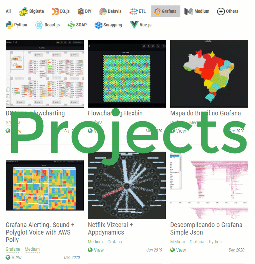Install
curl -OL https://go.dev/dl/go1.19.1.linux-amd64.tar.gz
tar xzvf go1.19.1.linux-amd64.tar.gz
Go jaeger exporter

git clone https://github.com/open-telemetry/opentelemetry-go.git
cd opentelemetry-go/example/jaeger
main.go
// Copyright The OpenTelemetry Authors
//
// Licensed under the Apache License, Version 2.0 (the "License");
// you may not use this file except in compliance with the License.
// You may obtain a copy of the License at
//
// http://www.apache.org/licenses/LICENSE-2.0
//
// Unless required by applicable law or agreed to in writing, software
// distributed under the License is distributed on an "AS IS" BASIS,
// WITHOUT WARRANTIES OR CONDITIONS OF ANY KIND, either express or implied.
// See the License for the specific language governing permissions and
// limitations under the License.
// Command jaeger is an example program that creates spans
// and uploads to Jaeger.
package main
import (
"context"
"log"
"time"
"go.opentelemetry.io/otel"
"go.opentelemetry.io/otel/attribute"
"go.opentelemetry.io/otel/exporters/jaeger"
"go.opentelemetry.io/otel/sdk/resource"
tracesdk "go.opentelemetry.io/otel/sdk/trace"
semconv "go.opentelemetry.io/otel/semconv/v1.12.0"
)
const (
service = "trace-demo3"
environment = "production"
id = 1
)
// tracerProvider returns an OpenTelemetry TracerProvider configured to use
// the Jaeger exporter that will send spans to the provided url. The returned
// TracerProvider will also use a Resource configured with all the information
// about the application.
func tracerProvider(url string) (*tracesdk.TracerProvider, error) {
// Create the Jaeger exporter
exp, err := jaeger.New(jaeger.WithCollectorEndpoint(jaeger.WithEndpoint(url)))
if err != nil {
return nil, err
}
tp := tracesdk.NewTracerProvider(
// Always be sure to batch in production.
tracesdk.WithBatcher(exp),
// Record information about this application in a Resource.
tracesdk.WithResource(resource.NewWithAttributes(
semconv.SchemaURL,
semconv.ServiceNameKey.String(service),
attribute.String("environment", environment),
attribute.Int64("ID", id),
)),
)
return tp, nil
}
func main() {
//tp, err := tracerProvider("http://localhost:14268/api/traces")
tp, err := tracerProvider("http://localhost:14269/api/traces")
//tp, err := tracerProvider("http://localhost:4318/v1/traces")
if err != nil {
log.Fatal(err)
}
// Register our TracerProvider as the global so any imported
// instrumentation in the future will default to using it.
otel.SetTracerProvider(tp)
ctx, cancel := context.WithCancel(context.Background())
defer cancel()
// Cleanly shutdown and flush telemetry when the application exits.
defer func(ctx context.Context) {
// Do not make the application hang when it is shutdown.
ctx, cancel = context.WithTimeout(ctx, time.Second*5)
defer cancel()
if err := tp.Shutdown(ctx); err != nil {
log.Fatal(err)
}
}(ctx)
tr := tp.Tracer("component-main")
ctx, span := tr.Start(ctx, "foo")
defer span.End()
bar(ctx)
}
func bar(ctx context.Context) {
// Use the global TracerProvider.
tr := otel.Tracer("component-bar")
_, span := tr.Start(ctx, "bar")
span.SetAttributes(attribute.Key("testset").String("value"))
defer span.End()
// Do bar...
}
Go grpc otel-collector

git clone https://github.com/open-telemetry/opentelemetry-go.git
cd opentelemetry-go/example/otel-collector
main.go
// Copyright The OpenTelemetry Authors
//
// Licensed under the Apache License, Version 2.0 (the "License");
// you may not use this file except in compliance with the License.
// You may obtain a copy of the License at
//
// http://www.apache.org/licenses/LICENSE-2.0
//
// Unless required by applicable law or agreed to in writing, software
// distributed under the License is distributed on an "AS IS" BASIS,
// WITHOUT WARRANTIES OR CONDITIONS OF ANY KIND, either express or implied.
// See the License for the specific language governing permissions and
// limitations under the License.
// Example using OTLP exporters + collector + third-party backends. For
// information about using the exporter, see:
// https://pkg.go.dev/go.opentelemetry.io/otel/exporters/otlp?tab=doc#example-package-Insecure
package main
import (
"context"
"fmt"
"log"
"os"
"os/signal"
"time"
"google.golang.org/grpc"
"google.golang.org/grpc/credentials/insecure"
"go.opentelemetry.io/otel"
"go.opentelemetry.io/otel/attribute"
"go.opentelemetry.io/otel/exporters/otlp/otlptrace/otlptracegrpc"
"go.opentelemetry.io/otel/propagation"
"go.opentelemetry.io/otel/sdk/resource"
sdktrace "go.opentelemetry.io/otel/sdk/trace"
semconv "go.opentelemetry.io/otel/semconv/v1.12.0"
"go.opentelemetry.io/otel/trace"
)
// Initializes an OTLP exporter, and configures the corresponding trace and
// metric providers.
func initProvider() (func(context.Context) error, error) {
ctx := context.Background()
res, err := resource.New(ctx,
resource.WithAttributes(
// the service name used to display traces in backends
semconv.ServiceNameKey.String("test-service"),
),
)
if err != nil {
return nil, fmt.Errorf("failed to create resource: %w", err)
}
// If the OpenTelemetry Collector is running on a local cluster (minikube or
// microk8s), it should be accessible through the NodePort service at the
// `localhost:30080` endpoint. Otherwise, replace `localhost` with the
// endpoint of your cluster. If you run the app inside k8s, then you can
// probably connect directly to the service through dns
ctx, cancel := context.WithTimeout(ctx, time.Second)
defer cancel()
//conn, err := grpc.DialContext(ctx, "localhost:30080", grpc.WithTransportCredentials(insecure.NewCredentials()), grpc.WithBlock()) conn, err := grpc.DialContext(ctx, "localhost:4317", grpc.WithTransportCredentials(insecure.NewCredentials()), grpc.WithBlock())
if err != nil {
return nil, fmt.Errorf("failed to create gRPC connection to collector: %w", err)
}
// Set up a trace exporter
traceExporter, err := otlptracegrpc.New(ctx, otlptracegrpc.WithGRPCConn(conn))
if err != nil {
return nil, fmt.Errorf("failed to create trace exporter: %w", err)
}
// Register the trace exporter with a TracerProvider, using a batch
// span processor to aggregate spans before export.
bsp := sdktrace.NewBatchSpanProcessor(traceExporter)
tracerProvider := sdktrace.NewTracerProvider(
sdktrace.WithSampler(sdktrace.AlwaysSample()),
sdktrace.WithResource(res),
sdktrace.WithSpanProcessor(bsp),
)
otel.SetTracerProvider(tracerProvider)
// set global propagator to tracecontext (the default is no-op).
otel.SetTextMapPropagator(propagation.TraceContext{})
// Shutdown will flush any remaining spans and shut down the exporter.
return tracerProvider.Shutdown, nil
}
func main() {
log.Printf("Waiting for connection...")
ctx, cancel := signal.NotifyContext(context.Background(), os.Interrupt)
defer cancel()
shutdown, err := initProvider()
if err != nil {
log.Fatal(err)
}
defer func() {
if err := shutdown(ctx); err != nil {
log.Fatal("failed to shutdown TracerProvider: %w", err)
}
}()
tracer := otel.Tracer("test-tracer")
// Attributes represent additional key-value descriptors that can be bound
// to a metric observer or recorder.
commonAttrs := []attribute.KeyValue{
attribute.String("attrA", "chocolate"),
attribute.String("attrB", "raspberry"),
attribute.String("attrC", "vanilla"),
}
// work begins
ctx, span := tracer.Start(
ctx,
"CollectorExporter-Example",
trace.WithAttributes(commonAttrs...))
defer span.End()
for i := 0; i < 10; i++ {
_, iSpan := tracer.Start(ctx, fmt.Sprintf("Sample-%d", i))
log.Printf("Doing really hard work (%d / 10)\n", i+1)
<-time.After(time.Second)
iSpan.End()
}
log.Printf("Done!")
}
2022/09/18 22:21:36 Waiting for connection...
2022/09/18 22:21:36 Doing really hard work (1 / 10)
2022/09/18 22:21:37 Doing really hard work (2 / 10)
2022/09/18 22:21:38 Doing really hard work (3 / 10)
2022/09/18 22:21:39 Doing really hard work (4 / 10)
2022/09/18 22:21:40 Doing really hard work (5 / 10)
2022/09/18 22:21:41 Doing really hard work (6 / 10)
2022/09/18 22:21:42 Doing really hard work (7 / 10)
2022/09/18 22:21:43 Doing really hard work (8 / 10)
2022/09/18 22:21:44 Doing really hard work (9 / 10)
2022/09/18 22:21:45 Doing really hard work (10 / 10)
2022/09/18 22:21:46 Done!

